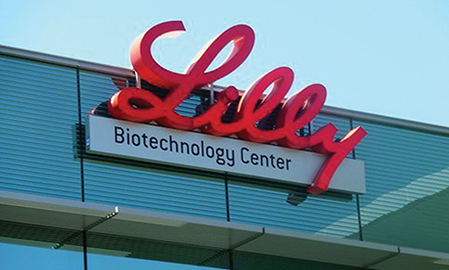Eli Lilly and Boehringer Ingelheim’s SGLT-2 inhibitor and type 2 diabetes treatment Jardiance (empagliflozin) received FDA approval this past Friday. Although it enters a crowded category, the drug’s competitive profile may win the day.
SGLT-2 inhibitors are an important new class of drugs for diabetics. These agents are used as add-ons for patients taking oral hypoglycemic drugs or insulin to help control their high blood sugar. Johnson and Johnson’s Invokana was the first SGLT-2 to be approved in March 2013.
Although J&J will not disclose exact sales for Invokana, the drugmaker reported in its second quarter earnings that “Invokana sales contributed over 2.5 points to [its] U.S. pharmaceutical growth rate and for the quarter achieved 2.3% total prescriptions within the defined market of type 2 diabetes,” and “total prescriptions with endocrinologists grew to 7% for the quarter, up approximately 1% sequentially.”
A year in perspective, accompanied by those figures, has led J&J to declare Invokana as “the most successful launch in type 2 diabetes since Januvia,” although the folks at AstraZeneca may contest that distinction.
AstraZeneca’s own SGLT-2 inhibitor Farxiga—which AZ acquired in its diabetes deal with BMS last year—was launched this past May. Out of the gate, the drugmaker has called the US debut “excellent,” as well as “one of the most successful launches in the overall non-insulin anti-diabetic markets since Januvia.” AZ, too, has not disclosed sales figures.
And it’s not hard to see why that’s an attractive comparison for either drugmaker. US sales for Merck’s Januvia were $2.8 billion last year, second only to Sanofi’s blockbuster Lantus.
While both drugs have enjoyed some success out of the gate, it’s easy to see how Jardiance could upend the market. Jardiance has a distinct advantage over both drugs in that it has yet to be marred by the safety concerns seen in Farxiga and confers two benefits not seen in either competitor’s SGLT-2s.
Farxiga has been flagged by the FDA over bladder cancer concerns and Invokana is not recommended for patients with severe liver damage. Diabetes is a leading cause of end-stage liver disease, and its been estimated that half of type 2 diabetics have fatty liver disease—which is linked to an increased risk of liver cancer.
This new diabetes clash is reminiscent of last year’s bout in multiple sclerosis. Novartis’s Gilenya and Sanofi’s Aubagio both offered novel oral treatments for the neurological disease when Biogen Idec’s Tecfidera was set to launch.
The odds seem stacked against the third entrant from the start. Both Aubagio and Gilenya were already on the market and Tecfidera wasn’t even the most efficacious drug of the three. Not unlike Jardiance, Tecfidera’s advantage is in its overall profile. Aubagio has a black box warning for liver toxicity and Gilenya was under fire at the time after an unexplained patient death in trials. After the regulator’s investigation, FDA expressed concern over the cardiovascular effects of Gilenya and eventually recommended against certain patients taking the drug.
Tecfidera was approved in March of last year and has already achieved blockbuster status with $1.38 billion in total sales, and a half a billion dollars coming from the first quarter of 2014 alone.
Invokana and Farxiga’s warnings pale in comparison to Gilenya and Aubagio’s, but in a crowded category, even a minor hiccup could cost both drugmakers significant market share. Outside of safety concerns, Jardiance has also lowered the weight and blood pressure of patients in trials—although the drug is not approved for either benefit.
In March, when MM&M spoke with Brian Whalen, VP science and medical at healthcare agency Evoke Health, he had this to say about SGLT-2s: “While barely a year has passed since the approval of first-in-class SGLT-2 inhibitor, Janssen’s Invokana, the class is crowded with a second approval [Farxiga], a third—empagliflozin —following shortly and five additional inhibitors in various stages of clinical development,” he said. “Among these, however, Eli Lilly and Boehringer Ingelheim’s empagliflozin may be the key product to watch.”
And fortunately for the diabetes duo, competition is still at least a year away. Merck and Pfizer announced a collaboration last April to work on their own SLGT2 formulation, with its Phase-III study set to finish in August of next year.
Correction: An earlier vision of this article suggested that Jardiance does not require patients to be monitored for renal impairment.







